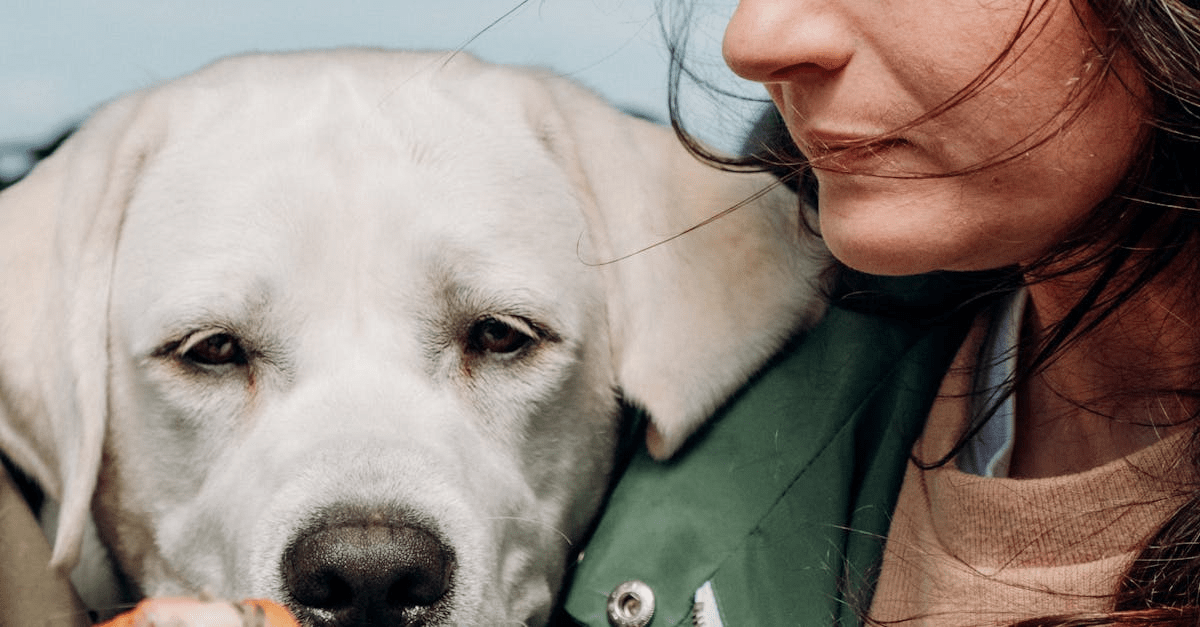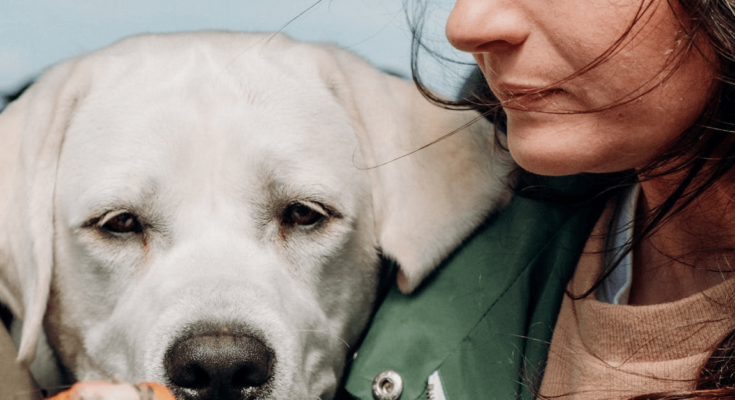Introduction: Unveiling the Top Dog Breeds for Hunting
Welcome to our comprehensive guide on the top dog breeds for hunting, where we delve into the world of four-legged companions that excel in the art of tracking and retrieving. Whether you are an experienced hunter or a novice enthusiast looking to explore the world of hunting with a loyal partner by your side, this guide is tailored just for you. Join us as we uncover the remarkable abilities and characteristics of these exceptional canines that have been finely tuned through generations of selective breeding.
From the swift and agile Labrador Retriever to the intelligent and tenacious German Shorthaired Pointer, each breed brings unique strengths to the table, enhancing the hunting experience in its distinct way. As we navigate through this engaging discussion, you will discover valuable insights to help you choose the perfect hunting companion based on your specific needs and preferences.
Key Takeaways from Our Guide:
- Exploration of the top dog breeds renowned for their hunting prowess
- Insights into the key characteristics and traits that make these breeds exceptional hunters
- Guidance on selecting the ideal hunting partner based on your hunting style and requirements
- Tips on training and nurturing your hunting dog to unlock their full potential in the field
Join us on this captivating journey as we shine a spotlight on the elite dog breeds that have earned their place as the finest companions for hunters across the country. Get ready to embark on an adventure filled with loyalty, skill, and the unbreakable bond between human and canine!
Key Takeaways
- Choosing the right dog breed for hunting is crucial for success in the field.
- Labrador Retrievers and German Shorthaired Pointers are versatile and popular choices for hunting.
- Consider the specific game you will be hunting when selecting a breed.
- Training and socialization are key factors in developing a good hunting dog.
- Regular exercise and mental stimulation are essential for maintaining a healthy and happy hunting dog.

Introduction to Top Dog Breeds for Hunting
Hunting alongside a skilled and reliable canine companion can greatly enhance the overall experience for any hunter. The selection of the right dog breed for hunting is crucial in ensuring success in the field. Different dog breeds have been selectively bred over generations to possess specific traits and skills that make them well-suited for various types of hunting.
Importance of Selecting the Right Dog Breed for Hunting
- Choosing the appropriate dog breed can optimize hunting efficiency and success rates.
- Each breed has unique characteristics that lend themselves to specific types of hunting, such as tracking, retrieving, or pointing.
- A well-matched dog breed can improve communication and collaboration between the hunter and the dog, leading to a more harmonious partnership.
Overview of How Different Dog Breeds Have Been Selectively Bred for Hunting Purposes
Throughout history, humans have selectively bred dogs for hunting based on desired traits such as agility, endurance, intelligence, and scenting abilities. This selective breeding has resulted in a wide variety of specialized hunting dog breeds, each excelling in particular tasks:
| Breed | Primary Hunting Skills |
|---|---|
| Labrador Retriever | Excellent retriever for waterfowl hunting |
| German Shorthaired Pointer | Great at pointing and flushing game birds |
| Beagle | Expert tracker for small game like rabbits |
By understanding the origins and abilities of different hunting dog breeds, hunters can make informed decisions when selecting a canine partner for their next hunting adventure.
Labrador Retriever – The Versatile Hunter
The Labrador Retriever, known for its friendly demeanor and intelligence, is a top choice for hunting enthusiasts. Let’s dive into why these dogs excel as hunting companions:
History and Origins
The Labrador Retriever breed originated in Newfoundland, Canada, where they were used by fishermen to help retrieve fishing nets and catch. They were later brought to England, where they were further developed as hunting dogs.
Key Characteristics
- Excellent swimmer: Their love for water makes them great for waterfowl hunting.
- Intelligent and trainable: Labs are quick learners, making them easy to train for various hunting tasks.
- Gentle mouth: They have a soft grip, ideal for retrieving game without damaging it.
Types of Hunting Activities
Labradors excel in various hunting activities, including:
- Duck hunting: Their water-loving nature and retrieving skills make them perfect for duck hunting.
- Upland game hunting: Labs are agile and can adapt to different terrains, making them versatile for upland game hunting.
Training Tips
When training Labrador Retrievers for hunting, focus on:
- Consistent practice: Regular training sessions will help reinforce hunting commands.
- Positive reinforcement: Use treats and praise to motivate your Lab during training.
- Simulated hunting scenarios: Mimic real hunting situations to prepare your Lab for the field.
German Shorthaired Pointer – The All-Rounder Hunter
The German Shorthaired Pointer is a versatile and proficient hunting breed that excels in various scenarios due to its unique characteristics.
Background and Development
The German Shorthaired Pointer originated in Germany in the 19th century through careful breeding of Spanish Pointers, Bloodhounds, and various scent hounds. This intentional mix created a dog with exceptional hunting skills and endurance.
Notable Traits
- Excellent scenting ability
- High intelligence and trainability
- Agile and athletic build
- Strong pointing instinct
Best Hunting Environments
German Shorthaired Pointers thrive in a variety of hunting environments, including upland game bird hunting, waterfowl hunting, and tracking wounded game. Their versatility makes them well-suited for both land and water-based hunting.
Nutritional and Exercise Requirements
To maintain their hunting prowess, German Shorthaired Pointers require a high-protein diet to support their active lifestyle. Regular exercise, such as running, swimming, and agility training, is essential to keep them in peak condition for hunting.
Beagle – The Small Game Specialist
Beagles have a rich historical context as small game hunting specialists, known for their exceptional tracking and hunting abilities. These compact yet energetic dogs are expert at pursuing rabbits, hares, and other small game with remarkable agility and determination.
Historical Context and Specialization
Originally bred in England for hunting, Beagles possess a strong instinct for tracking scents over long distances, making them ideal for small game hunting in various terrains. Their reputation as pack animals further enhances their hunting prowess when working together.
Unique Abilities
- Keen sense of smell: Beagles have one of the most sensitive noses among dog breeds, allowing them to pick up scents quickly and accurately.
- Agility and stamina: Their small size and muscular build enable Beagles to navigate through dense undergrowth and cover long distances while maintaining high energy levels.
Tips for Training Beagles
When training Beagles for small game hunting, it is essential to focus on scent recognition, obedience, and developing their natural hunting instincts. Positive reinforcement techniques and regular practice in different environments can help enhance their skills.
Health Considerations
For Beagles engaged in hunting activities, regular vet check-ups, proper nutrition, and monitoring their paw pads for injuries are crucial. Additionally, protecting them from ticks and other parasites prevalent in wooded areas is essential for their well-being.
Vizsla – The Agile Hunter
Origins and Background
The Vizsla breed originated in Hungary and has a rich history as a versatile hunting companion. Bred to work closely with hunters, Vizslas are known for their exceptional tracking abilities and keen sense of smell.
Physical Characteristics
Vizslas are medium-sized dogs with a sleek, muscular build that enables them to move swiftly and gracefully in the field. Their rust-colored coat is short and low-maintenance, perfect for outdoor activities.
Role in Upland Bird Hunting
Due to their agility and endurance, Vizslas excel in upland bird hunting, where they can cover vast areas of land while remaining attentive to their handler’s commands. Their natural retrieving instincts make them valuable assets in the field.
Socialization and Mental Stimulation
Vizslas are highly social dogs that thrive on human interaction. Regular exercise and mental stimulation are crucial to keeping them happy and healthy. Engaging activities like puzzle toys and obedience training help fulfill their need for mental challenges.
Golden Retriever – The Waterfowl Specialist
Golden Retrievers, known for their friendly nature and intelligence, have a rich history as skilled waterfowl hunting companions. Bred in the mid-19th century in Scotland, these versatile dogs were specifically developed to retrieve waterfowl with a gentle mouth and strong swimming abilities.
Why Golden Retrievers are ideal for retrieving waterfowl:
- Their water-resistant double coat and webbed feet make them well-suited for swimming long distances in various weather conditions.
- Their soft mouths ensure they can carry game without causing damage, crucial for retrieving delicate waterfowl.
- Their high level of intelligence and eagerness to please make them quick learners when it comes to following commands and retrieving targets efficiently.
Training techniques tailored for waterfowl hunting with Golden Retrievers:
When training Golden Retrievers for waterfowl hunting, positive reinforcement methods work best. Start with basic commands such as “sit,” “stay,” and “come,” gradually progressing to advanced skills like marking and blind retrieves. Incorporating water-based training sessions in ponds or lakes helps hone their swimming and retrieving skills.
Grooming and care tips for maintaining their coat during waterfowl hunts:
Regular grooming is essential to keep a Golden Retriever’s coat in top condition during hunting seasons. Brush their coat weekly to prevent matting and remove debris. After waterfowl hunts, ensure thorough drying to prevent skin issues. Trim their nails to maintain good paw health, especially for water activities.
Final Thoughts on Selecting the Right Hunting Dog Breed
When choosing a hunting dog breed, there are several key points to consider to ensure a successful hunting partnership. Here’s a summary of the essential factors to keep in mind:
Key Points to Consider:
- Temperament and personality traits of the breed.
- Size and physical characteristics suitable for the type of hunting.
- Trainability and willingness to work with their owner.
- Energy level and exercise requirements.
It is crucial to match the hunting dog breed to the specific environment and game you will be hunting. Different breeds excel in various terrains and hunting scenarios, so understanding your hunting environment is essential for success.
Responsible ownership and training practices are paramount when it comes to hunting dogs. Proper care, socialization, and training not only ensure the dog’s well-being but also contribute to a successful hunting experience.
Remember, a well-trained and appropriately matched hunting dog can enhance your hunting adventures and create a strong bond between you and your canine companion. Choose wisely and enjoy the rewarding experience of hunting alongside a loyal four-legged partner!
Conclusion
After exploring the diverse world of hunting dog breeds, it’s evident that each breed brings unique qualities to the table. From the versatile Labrador Retriever to the agile Vizsla and the waterfowl specialist Golden Retriever, hunters have a wide array of options to choose from based on their specific needs. Whether you’re looking for a small game specialist like the Beagle or an all-rounder hunter like the German Shorthaired Pointer, selecting the right hunting dog breed is crucial for a successful hunting experience. Consider factors such as temperament, size, and hunting style to find your perfect hunting companion.
Frequently Asked Questions
1. What are the best dog breeds for hunting?
Some of the top dog breeds for hunting include Labrador Retrievers, German Shorthaired Pointers, Beagles, and English Springer Spaniels.
2. At what age should I start training my hunting dog?
It is recommended to start training your hunting dog as early as 8 weeks old to build a strong foundation for obedience and hunting skills.
3. How can I ensure my hunting dog stays healthy during hunting season?
To keep your hunting dog healthy during hunting season, provide regular exercise, proper nutrition, access to clean water, and regular vet check-ups.
4. What type of hunting is each breed best suited for?
Labrador Retrievers are excellent for waterfowl hunting, German Shorthaired Pointers excel in upland bird hunting, Beagles are great for rabbit hunting, and English Springer Spaniels are skilled at flushing game birds.
5. How do I choose the right hunting dog for my needs?
When choosing a hunting dog, consider the type of game you will be hunting, the terrain you will be hunting in, the dog’s temperament, and your level of experience in training hunting dogs.



